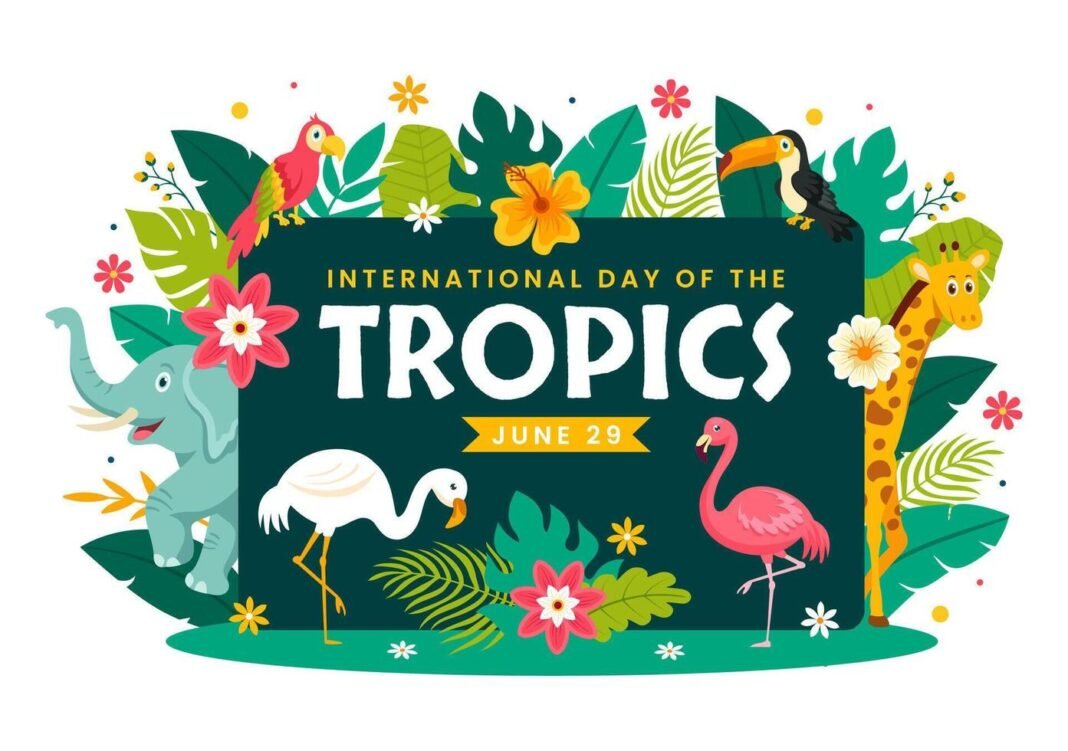International Day of Tropics, celebrated annually on June 29th, is a significant observance that underscores the importance of tropical regions to the global community.
This day, established by the United Nations, is dedicated to raising awareness about the challenges faced by the tropics and celebrating the rich diversity and critical contributions of these regions.
The tropics, which span the Tropic of Cancer and the Tropic of Capricorn, encompass diverse ecosystems, cultures, and economies vital to the health and well-being of the entire planet.
Ecological Importance of Tropics
The tropics are home to some of the most biodiverse ecosystems on Earth.
Tropical rainforests, coral reefs, and mangrove forests are teeming with life, housing a significant proportion of the world’s flora and fauna.
These ecosystems play a crucial role in regulating the global climate. For instance, the Amazon rainforest, often called the “lungs of the Earth,” absorbs vast amounts of carbon dioxide and releases oxygen, helping mitigate the effects of climate change.
Similarly, tropical coral reefs act as natural barriers protecting coastlines from storms and erosion while supporting diverse marine life.
However, these vital ecosystems are under threat. Deforestation, pollution, overfishing, and climate change are causing unprecedented damage.
The International Day of the Tropics serves as a reminder of the urgent need to protect these ecosystems.
Conservation efforts, sustainable practices, and international cooperation are essential to preserve the ecological balance and ensure the survival of countless species.
Socio-Economic Challenges and Opportunities
Tropical regions are marked by stark socio-economic contrasts.
While some tropical countries are emerging as significant economic players, others grapple with poverty, inequality, and political instability.
Moreover, many tropical nations depend heavily on agriculture, tourism, and natural resources, making them vulnerable to environmental changes and economic fluctuations.
Today, the international community is called to recognize these disparities and support sustainable development initiatives.
Investment in education, healthcare, infrastructure, and technology can drive economic growth and improve living standards in tropical regions.
Furthermore, promoting sustainable tourism and agriculture can create jobs and protect natural resources, fostering long-term prosperity.
Celebrating Cultural Diversity
The tropics are a mosaic of cultures, languages, and traditions.
Indigenous communities in these regions have developed unique ways of living harmoniously with nature, contributing invaluable knowledge and practices for sustainable resource management.
The International Day of the Tropics celebrates this cultural richness and promotes intercultural dialogue and understanding.
Additionally, Preserving and respecting indigenous cultures is a matter of cultural heritage and environmental stewardship.
Indigenous peoples often possess intricate knowledge of local ecosystems and sustainable practices that can inform conservation efforts.
Moreover, Recognizing and empowering these communities is essential for achieving sustainable development goals.
Interesting Facts about Tropics
The tropics, the region of Earth surrounding the equator and bounded by the Tropic of Cancer to the north and the Tropic of Capricorn to the south, are renowned for their rich biodiversity, unique cultures, and significant global influence.
Here are some fascinating facts about the tropics:
Ancient Civilizations: The tropics have been home to advanced ancient civilizations such as the Maya in Central America and the Khmer Empire in Southeast Asia, leaving behind rich archaeological and cultural legacies.
Species Richness: Approximately 80% of the world’s terrestrial and marine biodiversity is found in tropical regions. This includes countless species of plants, animals, fungi, and microorganisms.
Languages and Ethnic Groups: The tropics are home to many ethnic groups and languages. For instance, Papua New Guinea alone has over 800 languages, reflecting immense cultural diversity.
Amazon Rainforest: Spanning over 5.5 million square kilometres (2.1 million square miles), the Amazon Rainforest is the largest rainforest in the world, producing 20% of the world’s oxygen.
Unique Flora: The tropical climate supports the growth of exotic plants and fruits such as mangoes, papayas, and durians, which are staples in tropical diets and are popular worldwide.
Also Read: International Micro-, Small and Medium-sized Enterprises Day 2024
Medical Research: Tropical biodiversity has led to numerous scientific discoveries, including vital medicines. For example, the rosy periwinkle from Madagascar has been used to develop treatments for leukaemia.



